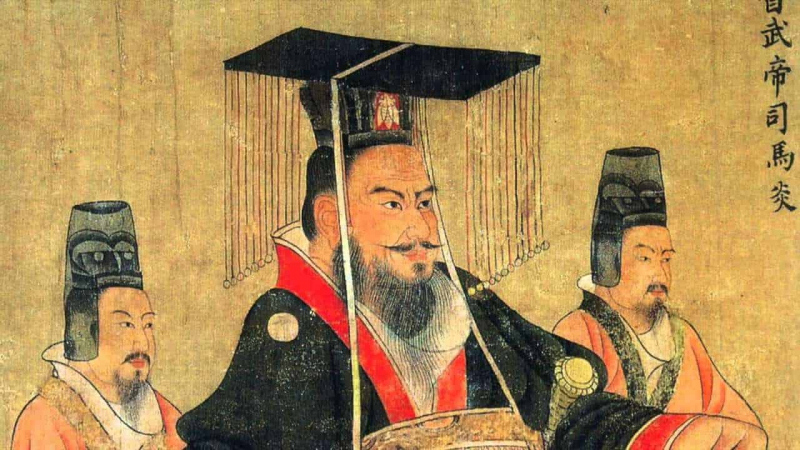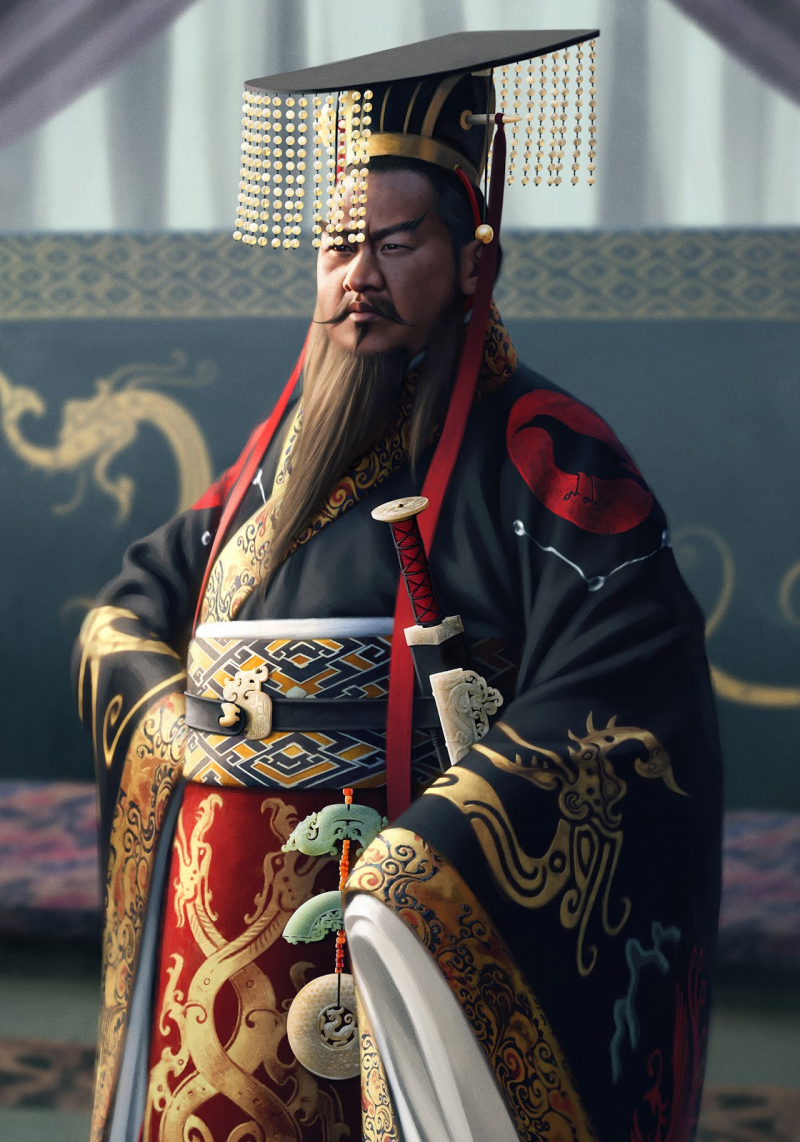Emperor Wu of Han
Emperor Wu of Han (Chinese: 孝武皇帝, 156 - 29 March 87 BC), formally enshrined as Emperor Wu the Filial, born Liu Che and courtesy name Tong, was the seventh emperor of ancient China's Han dynasty, reigning from 141 to 87 BC. His reign lasted 54 years, a record that was not broken until the reign of the Kangxi Emperor more than 1,800 years later and which still stands for ethnic Chinese emperors. He is among the most important historical figures in China. His reign resulted in a vast expansion of the Chinese civilization's geopolitical influence, as well as the development of a strong centralized state through governmental policies, economic reorganization, and the promotion of a hybrid Legalist-Confucian doctrine. Emperor Wu is known in the field of historical social and cultural studies for his religious innovations and patronage of the poetic and musical arts, including the establishment of the Imperial Music Bureau as a prestigious entity. During his reign, cultural contact with western Eurasia was also greatly increased, both directly and indirectly.
During his reign as Emperor, he oversaw the Han dynasty's most extensive territorial expansion. The Empire's borders stretched from the Fergana Valley in the west to northern Korea in the east and northern Vietnam in the south at its peak. After successfully repelling the nomadic Xiongnu from systematically raiding northern China, Emperor Wu sent his envoy Zhang Qian into the Western Regions in 139 BC to seek an alliance with the Greater Yuezhi and Kangju, which resulted in additional diplomatic missions to Central Asia. Although historical records do not mention him being aware of Buddhism, instead emphasizing his interest in shamanism, cultural exchanges that occurred as a result of these embassies indicate that he received Buddhist statues from Central Asia, as depicted in the murals found in the Mogao Caves.
Emperor Wu is regarded as one of the greatest emperors in Chinese history due to his strong leadership and effective governance, which helped the Han dynasty become one of the world's most powerful nations. According to Michael Loewe, Emperor Wu's reign was the "high point" of "Modernist" (classically justified Legalist) policies, looking back to "adapt ideas from the pre-Han period." His policies and most trusted advisers were Legalist, favoring Shang Yang followers. Despite establishing an autocratic and centralised state, Emperor Wu adopted Confucianism as his empire's state philosophy and code of ethics, and established a school to teach future administrators the Confucian classics. These reforms had a long-lasting impact on imperial China and had a huge impact on neighboring civilizations.












